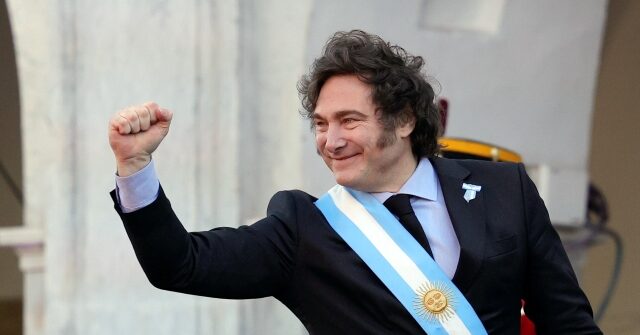Argentina took an unprecedented step on the third day of the COP29 climate summit in Baku, Azerbaijan, by withdrawing its negotiators from the conference. Undersecretary for the Environment, Ana Maria Vidal de Lamas, confirmed the withdrawal, stating, “We have instructions from the ministry of foreign affairs to no longer participate.” Reports indicated that at least three key government representatives, including those from the Foreign Ministry and Tourism Ministry, received a “non-negotiable” order to discontinue further engagement at the summit. While delegates from various Argentine provinces were permitted to remain and participate, the main delegation appeared to be meant for a swift departure back to Argentina. The sudden withdrawal has raised questions about Argentina’s broader commitment to international climate agreements, given the recent ascension of President Javier Milei, who has expressed skepticism about climate policies similar to the views of U.S. President-elect Donald Trump, who previously withdrew the U.S. from the Paris climate agreement.
Furthermore, the timing of Argentina’s exit from COP29 coincided with Milei’s recent discussions with Trump, in which Trump referred to Milei as his “favorite president.” This relationship, alongside Milei’s admiration for Trump and libertarian economic views, suggests a shift in Argentina’s approach to climate policy. Milei has publicly distanced himself from initiatives like the UN’s 2030 Agenda, dismissing its framework as “cultural Marxism” and a form of decadence. His administration has already taken measures to streamline government spending by dissolving several ministries, including that of Environment and Sustainable Development. This move has further diminished the importance of environmental oversight, delegating the responsibilities to an undersecretary role.
Despite Milei’s apparent ambivalence regarding the Paris Agreement, there are signs of conflicting strategies within his administration. Marcia Levaggi, recently appointed as Argentina’s “climate diplomat,” indicated a commitment to the Paris Agreement and expressed the administration’s intention to honor environmental accords, including aspirations for achieving net-zero carbon emissions by 2050. This duality suggests that while Milei’s government is influenced by libertarian principles focusing on deregulation, there exists an understanding within some circles that market forces necessitate certain environmental commitments. Thus, there remains a potential for a complex, evolving stance regarding international climate obligations.
The withdrawal from COP29 has elicited criticism from climate activists, who argue that Argentina risks diminishing its influence in negotiations concerning climate finance—an essential factor in addressing the global climate crisis. Carla Chavarria, a climate management specialist, emphasized the detrimental implications this decision could have on the nation’s capacity to secure resources for climate adaptation. Meanwhile, local advocacy groups expressed disappointment in Argentina’s departure, highlighting the nation’s prior engagement with gender-focused climate programs at international levels. Notably, these reactions underscore a broader concern regarding Milei’s credibility among international climate forums, as much of the discourse in Baku has revolved around significant climate policy debates and financial commitments.
Moreover, Milei’s exit from COP29 seems to coincide with heightened tensions between international delegations within the conference. Azerbaijani President Ilham Aliyev’s opening remarks dismissing criticisms of his country’s oil and gas industry, alongside accusations of neo-colonialism directed toward France, set a contentious tone for the event. This prompted French officials, including Ecology Minister Agnes Pannier-Runacher, to pull out of the conference, labeling Aliyev’s comments as a violation of U.N. climate protocols. Such political undertones may reinforce Milei’s skepticism towards COP29, viewing it as a politically charged environment rather than a purely scientific or environmental undertaking.
In the wake of these developments, it remains to be seen how Argentina’s shifting stance on climate policy will evolve under the Milei administration. The apparent disinterest in participating actively in COP29 is indicative of a broader desire to recalibrate Argentina’s international priorities, aligning more closely with economic imperatives while grappling with climate commitments. The internal governmental dichotomy on environmental policy signals a potential struggle for coherence as Argentina navigates its role in global climate discussions. Overall, Milei’s decisions going forward could significantly affect not only Argentina’s domestic agenda but also its standing within the international climate community amidst rising global urgency for coordinated climate action.

